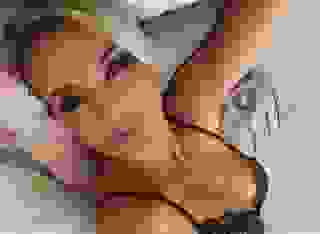- Novels and Novellas
- Schemes of the Unknown Unknown Ch. 20
Note: You can change font size, font face, and turn on dark mode by clicking the "A" icon tab in the Story Info Box.
You can temporarily switch back to a Classic Literotica® experience during our ongoing public Beta testing. Please consider leaving feedback on issues you experience or suggest improvements.
Click hereChapter Twenty
Earth - 3753 C.E.
"I'd almost forgotten why we were here," admitted Paul when the holographic message arrived for him at the hotel in the heart of the Amazon Jungle where he'd been staying with Beatrice. "It's been such a long time since we heard anything about the mission."
Professor Wasilewski's image flickered against the window through which could be seen a torrential downpour and lofty trees from which monkeys were howling at each other. The professor wasn't especially amused by Paul's remark.
"There are good reasons why we haven't bothered you for so long," he said wearily. "Nevertheless, your holiday is now over. You are urgently required at the briefing centre at South Pacific City. Please make sure you aren't late for even that."
As the image flickered out of sight, Paul glanced over at Beatrice who was lying on the bed beside him. "What's a holiday?" he asked. "Why is it over?"
"We've got just under a week to get from here to South Pacific City," said Beatrice who couldn't be bothered to explain to Paul the vocabulary of employment used throughout most of the Solar System. "It might take all of that time to get there."
"Why's that?" wondered Paul. "The Pacific Ocean's just on the other side of the Andes. It doesn't look like it's very far at all."
"Unless we can board a dirigible at Sao Paolo which is two days journey away, the voyage by sea will take at least what's left of a week to arrive at South Pacific City," said Beatrice who understood the urgency of not missing her ticket to the Anomaly rather more than Paul. "We must leave immediately. I'll alert Jorgen and Grace if they haven't already been contacted."
"I hate travelling," said Paul peevishly. "Do we have to leave? We haven't been here for more than two days. We've hardly seen anything. Can't this mission wait a bit?"
Beatrice stared at Paul with an expression that, for the first time since the couple first met, suggested something other than undying love and affection. Then she smiled seductively. "If you don't come, I'll have to go without you," she said teasingly.
Paul knew when he was beaten. "Then I guess we ought to prepare to leave," he said with resignation.
The last few months on Earth had been just as chaotic and unplanned as all the months before, but Paul had finally come to enjoy being on the planet. There was something marvellous about the sheer unpredictability of each day. If you didn't bother to access the unerringly accurate meteorological reports, it was impossible to say in advance whether a day would be sunny and warm, wet and cold, or just indifferent. There was an amazing variety of places to visit. There were wide empty hot deserts. Impressive historic temples. Wide open rivers. And here there was hectare after hectare of rain forest populated by monkeys, tapirs, river dolphins and brightly coloured birds of paradise.
Sure, there were things like this on all the colonies in the Solar System. Godwin had its own wildlife park and a lake large enough for dolphins, seals and sharks. However, the sheer variety of natural landscapes on Earth bound not by human design but by the natural lines of latitude and topology was quite beyond compare. Paul was already beginning to wish that he'd appreciated rather more the sights and sounds of the Sun's one and only naturally habitable satellite.
The journey from the hotel in the heart of the Amazon Jungle to South Pacific City was every bit as tortuous as Beatrice predicted. The necessity to restrict environmental impact had so reduced the choice of transport—especially in such wild regions of the world as the Amazon Jungle—that the time it took was indeed very nearly a week. The voyage by steam boat down the River Amazon was the most enjoyable episode although Paul soon discovered that there were stretches of river along which the boat travelled close enough to the bank for the many voracious insects to fly aboard and nibble at his arms and ankles. Naturally, Beatrice was immune to such pests so while Paul hid inside the boat to avoid being bitten, she rested on the deck with Jorgen and watched the monkeys leap across the canopy of the forest that hemmed in the river.
There was no ship berthed at Sao Paolo when Paul and Beatrice arrived, but there was a dirigible due to travel to Japan. Jorgen and Grace negotiated an unscheduled diversion to South Pacific City for the two tourists. All the same, the couple still had to wait a while in the sprawling city which Paul had already visited and didn't really care to visit again. It also rained the entire time they were there. This was one of many species of inclement weather that Paul was content never to have to endure again. The dirigible eventually arrived and, despite a delay caused by strong wind, Paul and Beatrice were able to float to their destination over the Amazon Forest, the Andes and the South Pacific.
Paul regarded the acres of forest in the Amazon from above with a faint feeling of regret. He would probably never again see so much verdant forest. Nowhere else in the Solar System was so much space put aside for the cultivation of trees. Nowhere else, indeed, was there such a long chain of snow-capped mountains as the Andes or such a wide open ocean as the Pacific. There were many splendid sights beyond Earth, but few of these were the result of the biological and tectonic activity of the only genuinely living planet in the Solar System.
The couple re-joined Mission Control in a suburb of South Pacific City where they met the scientists who couldn't be spared as readily as Paul. This was on a floating artificial island separated by several kilometres from the next point of land to which it was connected by long translucent tubes deep beneath the ocean surface. Security was as tight as any that Paul had experienced since he first arrived on Earth. The Briefing Centre was disguised as an Interplanetary Union military base although there were very few actual military personnel apart from those guarding the facilities.
Most of the scientists who had the pleasure to meet Paul and Beatrice for the first time had no idea who they were or that they were even part of the mission. They were delighted to be introduced to Beatrice who was charmingly adept at social niceties and polite conversation, but rather less so Paul who had no idea at all of how to comport himself. He was socially awkward and had little to say that was likely to be of interest to anyone he spoke to. Although Paul was generally happy to leave polite discourse to his wife, there were the occasions when he would launch into discussion with an unsuspecting physicist or geologist where he would expound a half-understood hypothesis and display his ignorance of the scientist's actual discipline. Not surprisingly, those who experienced the dubious pleasure of conversation with Paul were reluctant to seek him out again.
The main reason for Paul and Beatrice being there was not for the opportunity to socialise as they were soon to discover when they gathered together with several hundred fellow scientists in a spacious semi-circular auditorium to be briefed on the rest of the mission. The couple were positioned close to the front where not only did they have a very good view of who was making the address without needing to gaze at the holographic screens on either side of the central dais, but, more uncomfortably, could easily be seen by those on stage. It was obvious that Professor Wasilewski wasn't especially enthusiastic to see Paul and Beatrice sitting together only three rows back from the front row when he eased himself into his chair behind the dais.
The proceedings began with a general address from Doctor Livingston Achebe, the Director of Training for the mission. He thanked everyone for being there and made jokes about the recent storm that had blown over the city which drew appreciative laughter from everyone except Paul who'd been on a boat cruise around the Black Sea when it happened.
"It's been a challenging year of study and research," said the Director to almost universal agreement from the scientists gathered about him. "You might have wondered whether it would ever be over and whether the mission itself could possibly be more challenging than the work you've already engaged in. I know it's been a time of long hours dedicated to research where you've taken advantage of the wealth of classified data at your disposal, but the real mission is now about to begin. Soon you will be carrying out your research far closer to the Anomaly than any human has ever been before. Naturally, many of you will be frustrated that your valuable research has barely begun before you have to leave Earth, but you'll be delighted to know that there will be extensive research facilities for the entire mission and that you'll be able to continue just as well as you have at South Pacific City."
The audience expressed a general sense of satisfaction, while Paul felt slight tangs of guilt. What had all these scientists been doing for the last year that had kept them so busy? What was so valuable about their research? Was there literally nothing that he could have done other than travel haphazardly to the sights of planet Earth?
The audience were then introduced to Captain Miriam Deng of the Interplanetary Union Navy. She was a short woman with long yellow hair that flowed down to her ankles and a tight-fitting uniform that hid very few details of her petite but perfectly formed figure. It was this rather than her words that Paul focused on while the captain spoke.
"The space ship Intrepid is over five hundred years old, but it was built in an age when there was a short-lived craze for space cruises beyond the ecliptic. It is one of the largest space ships in the Solar System and has the capacity to journey even as far as a remote stellar system although it's never been employed for that purpose. Despite its advanced age, it has been fitted with the latest technology. So, what you will be living in for the next few years is a combination of Thirty-Second century luxury and the best that is currently on offer."
The captain went on to describe the space ship in more detail with the aid of holographic images that filled the entire auditorium but was so designed that everyone could get a clear view. Paul's eyes, however, stayed fixed on Captain Miriam Deng's remarkable embonpoint rather than the intricate and complex image floating above his head. He managed to hear enough to impress him about the scale of the space ship and the way in which each level was almost a miniature colony with lakes, rivers, parks and woodland. His mind wandered when the captain described how the ship was powered by antimatter and nuclear fusion energy and how the space ship utilised particles of matter that it gathered from deep space as it travelled. It was peculiar to imagine a space ship behaving like a huge vacuum cleaner. So much interplanetary matter had been converted into either the raw material or source energy of colonies and space ships that the Solar System must be a much less cluttered place than it once had been. Would there ever be a time when there was no longer enough free-floating matter, even in the Asteroid Belt, to satisfy the Solar System's demands?
"A space ship of the Intrepid's size cannot fly freely in the ecliptic," continued the captain. "It would be far too dangerous. The risk of collision with a colony, planet or moon might be very small, but the consequence of an encounter with a fast moving space ship of the Intrepid's mass is too appalling to be contemplated. It would be truly cataclysmic if there was ever an accident or a terrorist attack that impacted on a human settlement. If the Intrepid crashed into South Pacific City, it wouldn't just be a disaster for all of us sitting here. It's quite likely that the impact would be as great as that which caused the extinction of the dinosaurs some sixty-five million years ago. Although, unlike the dinosaurs, mankind would undoubtedly survive this is only because we don't all live on this verdant but fragile planet."
Paul noted the reference to Earth's vulnerability. Although he appreciated that the planet's biosphere needed careful maintenance, he sometimes wondered how Earth had managed before humans were around. There had been plenty of extraterrestrial impacts, supervolcanoes, tsunamis, earthquakes and methane belches in that time. On the other hand, the scope of humanity's negative impact had already exceeded any event since the Permian-Triassic catastrophe and that had been over a quarter of a billion years before.
"The Intrepid is currently a light hour or a billion kilometres away," said the captain. "It will take you approximately two months to reach the space ship of which most of the first week will be spent escaping from Earth orbit."
The Intrepid was about as far away from Earth orbit as Jupiter and the journey there would be on a series of five or six different space craft of steadily greater size and acceleration.
"There is a sense in which your first contact with the Intrepid will be within a month. That's when you'll intercept with the Intrepid's shuttle craft for the last leg of the journey. You'll be pleased to know that this space shuttle is much larger and more comfortable than the one that transported you to South Pacific City." There was appreciative laughter from an audience that had suffered the cramped and uncomfortable conditions of terrestrial air flight. "There will be a dozen or so space shuttles waiting for you and they are each about half a kilometre long. They will all be accommodated inside the Intrepid for the duration of the journey so this will give you an idea of the space ship's relative scale. The next time that you're likely to board one of these space shuttles again is either on the return journey or, if need be, when you reach your destination."
The captain then gave details regarding the accommodation and facilities aboard the space ship Intrepid. These sounded rather better than Paul had expected. Indeed the more he heard about the Intrepid the more it resembled a manoeuvrable space colony than a space ship. Indeed, there were some space colonies—especially the older ones—that were smaller than the space ship where Paul and Beatrice would soon be spending several years of their lives.
"The waiting will soon be over," said Professor Wasilewski to the audience after the captain's address. "It's been a long and frustrating year, I know, but I'm sure that it's been time that's you've spent usefully. We've given you sufficient resources for you to continue your research from the moment you leave Earth and for your entire journey on the Intrepid. We have provided you with as much information as we possibly can, but as Doctor Achebe has already stated there will be a rather greater quantity and quality of data the closer the Intrepid approaches its destination. The journey to the Anomaly is expected to take slightly more than two years. The return trip will be approximately the same depending on the Earth's relative position within the Solar System. The unknown, of course, is how long you can expect to be orbiting the Anomaly. In that sense, the mission is open-ended. There are sufficient resources for the Intrepid to remain in orbit around the Anomaly for many years. The Intrepid was designed to maintain self-sufficient flight in deep space for generations, but we wouldn't wish the mission to take quite as long as that. Our present expectation is that the Intrepid will remain in orbit around the Anomaly for a period of up to three years."
Paul added all the years together. This amounted to at least six or seven years. Taking into account the journey to Earth, the return to Godwin and his year-long holiday, the whole duration of the mission from leaving his home colony would be nearly a decade. That was a huge commitment for anyone. And he was barely a fifth of the way through. He whispered his observations to Beatrice.
Beatrice was totally unimpressed. And how could she be otherwise? She'd already committed many human lifetimes to this mission and most of that had been spent alone and isolated in deep space through which she'd travelled a distance far greater than the Intrepid needed to reach its destination at a speed that was much faster than human space ships were as yet capable. She had no real concern about how long her mission would take but what she knew that no one else did was that it wouldn't be Professor Wasilewski who'd take the decision as to how long the Intrepid would orbit the Anomaly and what else it should do after it had travelled so deep into space. It wouldn't be Mission Control on the Moon either. Nor would it be the Intrepid's captain. The decision-maker and mission-controller would be none of these humans. It would, of course, be her.
"When I say the Intrepid will be in orbit around the Anomaly," continued the professor, "I am speaking metaphorically. Or using the best analogy I have available. The Anomaly has no mass so it exercises no gravitational force that the Intrepid can use to establish an orbit. Furthermore, it has no extent in the normal sense of the word. We have no real understanding as to what is even meant by its radius or circumference. We believe that there are points located behind the Anomaly, just as there are above and below, where it doesn't continue to impinge into space. No robot craft has yet penetrated the Anomaly and continued to return a coherent signal. There is no electromagnetic radiation emitting from the Anomaly and it is quite clearly not a black hole or a body of any measurable mass at all. However, I must stress that this is not a suicide mission. The mission is not one-way. Our intention is that all of you shall return home after you've collected enough scientific data to help us understand just what this Anomaly happens to be."
Beatrice reviewed what the professor had just said. Proxima Centauri had been orbiting the Anomaly for over a century now and had undertaken rather more research than the human crew and passengers of the Intrepid could possibly do. She knew that Mission Control shared the view of her machine civilisation that the presence of humans was somehow critical in understanding the Anomaly. Why else would there be so many bizarre anthropocentric Apparitions? Beatrice also shared the view that there was no good reason for the Intrepid to be launched on a suicide mission. What possible value could there be in losing contact with a human space ship which would be no more capable of continuing to broadcast information from inside the Anomaly than a Proxima Centauri probe? In this matter, Beatrice and the professor were very much in agreement. However, it was another matter entirely whether the Intrepid would be allowed to return to the ecliptic. It would depend entirely on the circumstances pertaining at the time.
"Your patience will be rewarded," concluded the professor. "The first shuttles for the Intrepid will be departing within a week. The last of you will have left planet Earth before the end of the following week. I'm sure I don't have to stress how much importance the Interplanetary Union places on this mission. It only remains for me to wish you all the best of luck!"
"At last!" thought Beatrice.
"Hooray!" cheered the majority of scientists.
"Oh shit!" said Paul. "Does it have to be so soon?"
- COMMENTS








